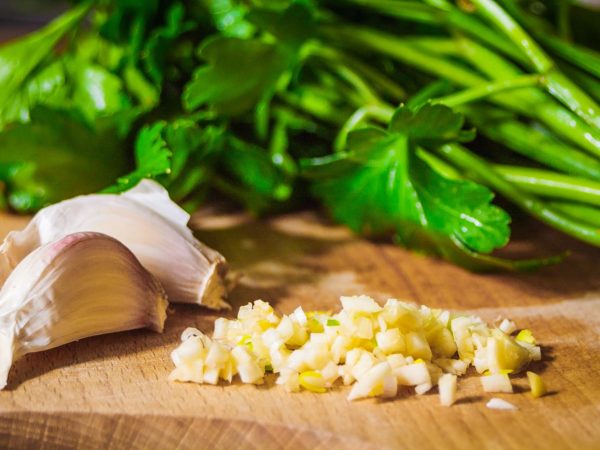Getting Enough Garlic?
Why don’t you recommend powdered and chopped onion and garlic? Does the processing cause them to lose nutritional value?
Andrew Weil, M.D. | November 18, 2008

Garlic is powerful natural therapeutic herb in addition to being a strong-flavored seasoning for food. It can help lower cholesterol and high blood pressure and may help prevent heart attacks by reducing blood clotting. What’s more, raw garlic is a potent antibiotic that is especially active against fungal infections. It has immune-stimulating properties as well as antibacterial and antiviral effects. The compound that is principally responsible for garlic’s disease-fighting ability (and pungent smell) is allicin, also found in lesser amounts in onions and other white vegetables. But note that allicin is formed from an inactive precursor compound only after garlic is mashed or chopped and exposed to air for at least a few minutes.
Onions haven’t been studied as well as garlic, but, eaten raw, they may also inhibit clotting, and they appear to have similar immune-enhancing compounds.
While still useful as seasonings, both onion and garlic lose most of their medicinal value, including their cardiovascular benefits and antibiotic properties when they’re cooked or dried. In addition, commercial garlic capsules do not preserve the full activity of the fresh bulb.
You can use garlic as an effective home remedy for colds: when I feel a cold coming on, I chop a few cloves of garlic a day into my food. The idea is to eat raw garlic at the first onset of symptoms. A clove or two a day is recommended for people who suffer from chronic or recurrent infections, frequent yeast infections, or low resistance to colds and flu.
To make raw garlic more palatable, chop it fine, mix it with food, and eat it with a meal – add it last when you’re using it in cooking. Or cut a clove into chunks and swallow them whole like pills. If garlic gives you flatulence, eat less. Chewing some fresh parsley after eating garlic also minimizes the odor.
Andrew Weil, M.D.









